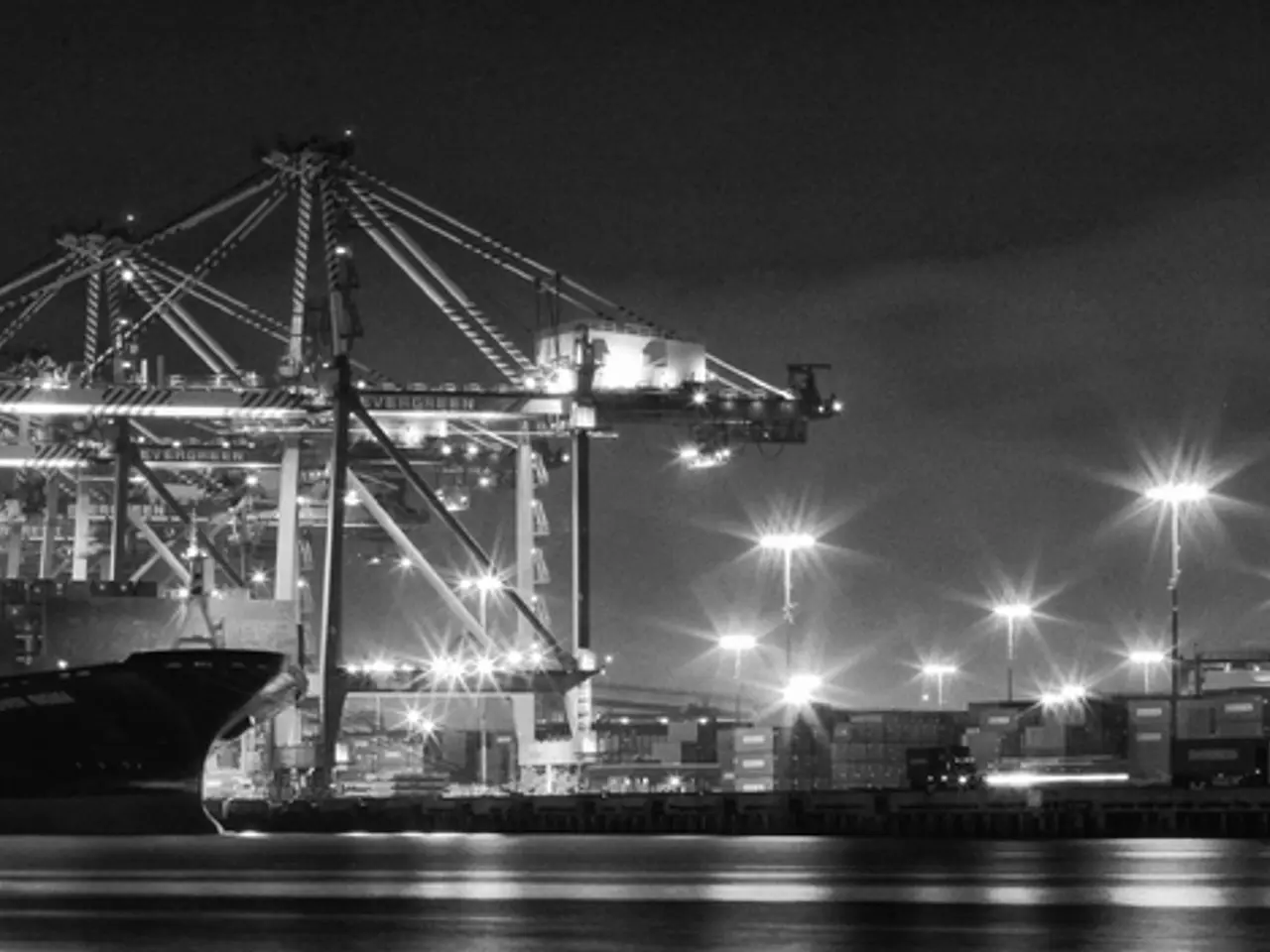Daily fatalities among workers at Korean shipyards: What makes them hazardous?
In a bid to reduce workplace fatalities and industrial accidents, South Korea's shipbuilding industry is implementing stringent safety measures and regulations. The high accident rate, notably above the national average, has prompted these changes.
Key current measures include a zero-tolerance policy for core risk factors, substantial investment in safety infrastructure, organizational and expert oversight, legal accountability and enforcement, government involvement, comprehensive safety plans, and social campaigns.
Major shipbuilders like HD Hyundai Heavy Industries have introduced systems such as "The Safe Care," which identifies 9 critical risks (falls, crushing, electric shocks, suffocation, fires, etc.) as absolutely prohibited. Violations of safety regulations result in immediate work stoppage, even if no accident has occurred.
Hanwha Ocean has committed 1.976 trillion won by 2026 toward achieving a zero-accident workplace. Samsung Heavy Industries has established a Safety Management Department, an Occupational Safety and Health Advisory Committee with external experts, and an Integrated Monitoring Center to oversee safety and security at its shipyard.
The Supreme Court has upheld suspended sentences for managers at Hyundai Heavy Industries implicated in fatal accidents, highlighting enforcement of the Occupational Safety and Health Act and negligent homicide charges following multiple deaths due to insufficient safety measures.
President Lee Jae Myung has mandated direct, rapid reporting of industrial deaths to himself to enhance oversight and ensure swift government response. The Ministry of Labor is tasked with devising a comprehensive industrial accident prevention framework and follow-up measures.
The government is considering fines up to 10 billion won for serious industrial accidents. The Lee Jae Myung administration aims to reduce workplace fatalities, which are currently high in the OECD.
Safety appears to be sacrificed for deadlines in certain industrial sectors, as suggested by the repeated accidents. Outsourcing of dangerous tasks may contribute to deaths down the chain, implying that subcontracted workers may be at a higher risk.
The Ministry of Labor is preparing a broad plan emphasizing safety culture development, collaboration among agencies, and dissemination of key safety rules, particularly targeting high-risk workplaces and vulnerable workers like subcontractors and temporary laborers.
Recent incidents include a previous accident at a shipyard offshore plant in Ulsan in February 2024, resulting in one worker's death and another's injury. In May 2024, two workers at a shipbuilding company in South Gyeongsang died after being crushed under a ship structure.
Lee Jae Myung vowed to make Korea a society where people don't die at work, specifically referencing the SPC plant. Foreign workers in Korea's booming shipyards are struggling with high remittances and debt obligations.
Workers handle molten metal at a blast furnace at Gwangyang Steelworks in Gwangyang, South Jeolla, as firefighters wait to lift a structure by crane for rescue operations at an undisclosed location. All AI-assisted translations are reviewed and refined by the newsroom.




